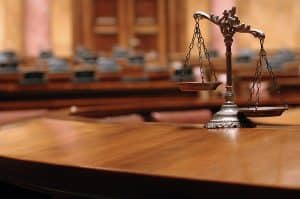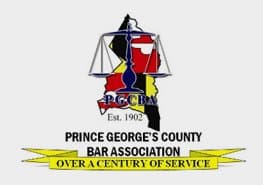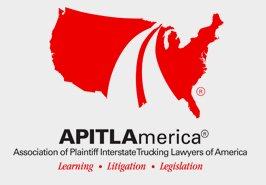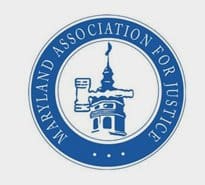 The United States is governed by a complex system of courts and branches that are meant to create laws in a fair and just manner through votes by local and state representatives. The Supreme Court is a part of our governmental branches that makes very important decisions that affect the entire country. It is reasonable that there would be a lot of thoughtful consideration and discussions when it comes to passing laws or making judgments, and that the process for these discussions and votes would be highly regimented so that there was as much transparency and order throughout it all.
The United States is governed by a complex system of courts and branches that are meant to create laws in a fair and just manner through votes by local and state representatives. The Supreme Court is a part of our governmental branches that makes very important decisions that affect the entire country. It is reasonable that there would be a lot of thoughtful consideration and discussions when it comes to passing laws or making judgments, and that the process for these discussions and votes would be highly regimented so that there was as much transparency and order throughout it all.
So the idea that some decisions and votes might be done seemingly very quickly and in secret might give us pause. The “shadow docket” has come under fire before and especially of late. What is it, and should we be concerned?
What does the Supreme Court do?
The Supreme Court, which met for the first time in 1790, is the arbiter of the U.S. Constitution. They are, according to the American Bar Association, “the highest tribunal in the United States for all cases and controversies arising under the Constitution.” There are traditionally nine justices serving on the Supreme Court.
The Supreme Court hears certain cases that have been granted elevation to be judged before them from the lower courts. Their main purpose is to settle usually nationally controversial disputes that generally have large-reaching effects.
What is the shadow docket?
Having been around for decades (or even centuries), the shadow docket is the decisions made “in the dark.” These are referred to as “emergency actions” in which the usual months-long time period of presenting arguments and cases is limited to just a few days. The reasons for the final decision from the Supreme Court are usually limited, and it may be difficult to know which justice decided what.
According to University of Texas law professor Steve Vladeck, decisions made by the shadow docket in the past include “orders blocking and then clearing the way for the execution of Julius and Ethel Rosenberg in 1953 and orders blocking and then clearing the way for the continued bombing of Cambodia in 1973.”
The term “shadow docket” was only recently coined by a University of Chicago law professor in 2015, even though the concept has been around since nearly its beginning.
Why is it relevant today?
More recently, certain emergency actions by the shadow docket have attracted attention from both sides of the political aisle. Earlier this year in April, the Supreme Court made an emergency decision during the Louisiana v. American Rivers case to “reinstate an Environmental Protection Agency rule promulgated during the Trump administration that had been vacated by a lower court.” This rule was one that the left side of the political aisle did not agree with as it posed harm to the environment.
It’s not just the Democrats who object to the shadow docket’s decisions, but Republicans as well. In May, there was a shadow docket emergency action taken that “reinstated a district court decision blocking the enforcement of Texas’ controversial social media law.” The law was supported by many conservatives because it would have made social media platforms include speech that they would not have normally allowed on their sites. The blocking of this law has not been an agreeable decision to many of us who lean to the right.
Will the shadow docket ever be disallowed?
The shadow docket has many opponents, including Justice Elena Kagan. Kagan had made statements during the Louisiana v. American Rivers case, saying “The Court goes astray,” and that the emergency docket is “only another place for merits designations—except made without full briefing and argument’”
In another case presented to the shadow docket, Kagan spoke up, saying that “the majority’s decision is emblematic of too much of this court’s shadow-docket decisionmaking — which every day becomes more unreasoned, inconsistent, and impossible to defend.”
But as much as the shadow docket can be lambasted for passing unreasonable decisions, some people see it as a way to get important decisions made, and if those decisions are made in their favor, then why would they oppose it?
As we can see, there is a problem with having a non-transparent, secretive Supreme Court. Legal, direct, and by-the-book rules and laws are meant to be followed by every citizen and court in the country, so how is it fair that the Supreme Court can ignore the steps, the process, that everyone else has to follow in order to pass certain decisions and laws? Or are these decisions – some more favorable to us than others – worth the blurring of the legal process? Because the shadow docket may pass something we really agree with as much as it may decide something that we disagree with.
We at Carey Law Office like to follow the dictated and clear steps and rules laid out for us. It is how we know that we are being fair and just, and that our clients are getting our best foot forward. Our team operates with clear transparency with our clients so that they know exactly where we are in the process of their case. If you need legal advice or you want to set up a consultation, call us at 301-464-2500 or use our contact page. We’d love to set up a consultation with you at our offices in Crofton, Bowie, or Owings. We also happily serve Calvert County.

My name is Joe Carey, and I am the founder and principal attorney of the Carey Law Office. I have lived in Maryland my entire life. I grew up in a small town in Prince George’s County and, with the help of my partner in life, Nancy, I raised my family here: three exceptional children (a son and two daughters), and two goofy, spoiled black Labrador Retrievers. Learn More









